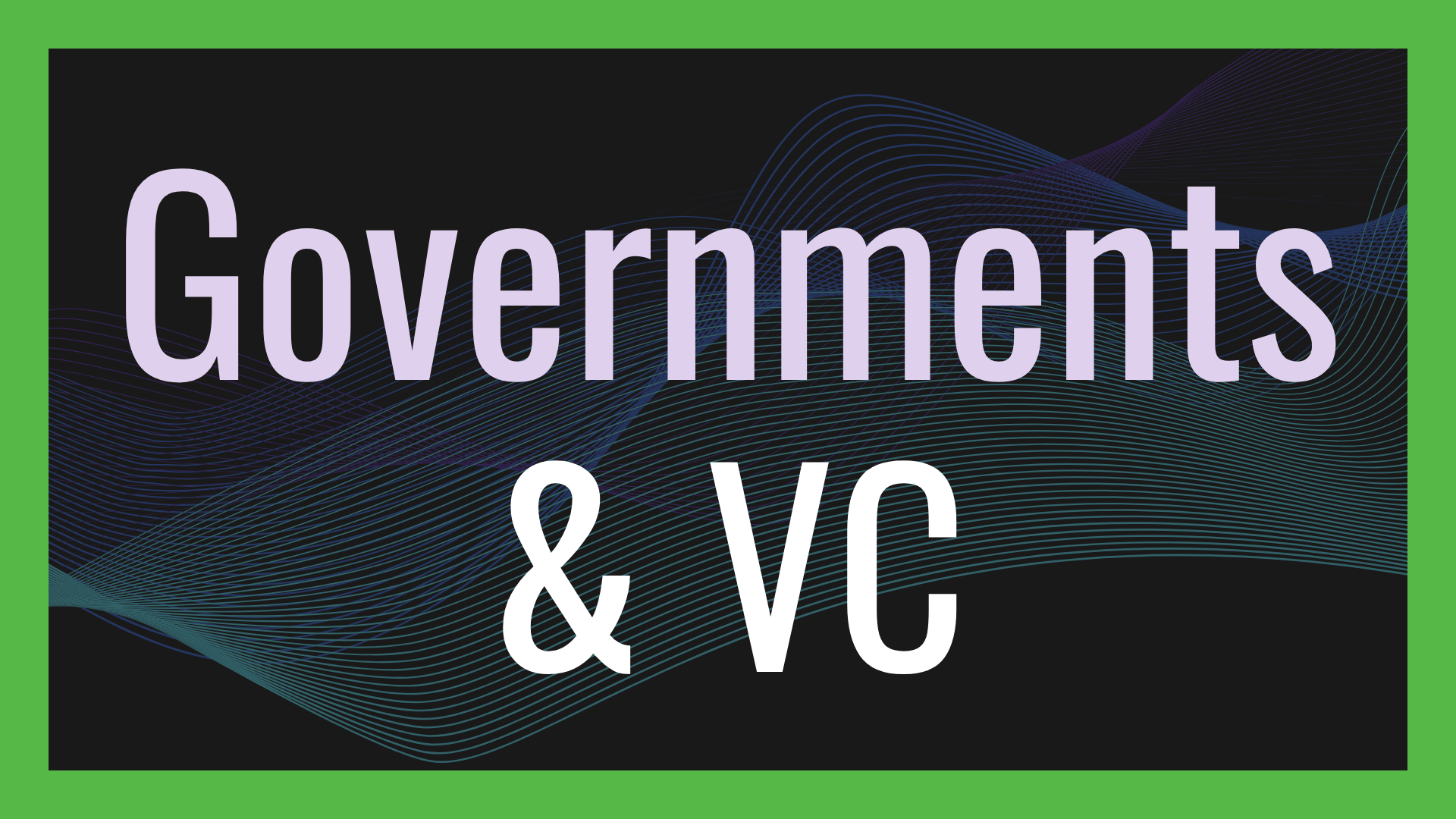
Watch our interview with Steve Jurvetson, who has been supporting transformative businesses for over 25 years as an early investor with the likes of SpaceX, Tesla, Planet, and UPSIDE Foods; and as a Presidential Ambassador for Global Entrepreneurship (appointed by President Barack Obama).
Table of Content:
- Fund & Team Size
- Importance of Debating
- Fund & Partnership Dynamics
- Thesis & Strategy
- Advice to New Fund Managers
On Fund Size
The bigger the fund size the worse the returns
A $1bn fund cannot perform as well as a $50m fund
However, the conventional line of thought used to explain this may be wrong.
The industry has always explained the loss in performance with phenomena like ‘regression to the mean’ and the change in the stage of the fund, the ticket size, and the increase in deals per partner.
I think that there is an independent reason that you can statistically discern, which is the team size.
On Team Size
It is statistically clear that when teams are bigger they make worse decisions
In Google, the average programming team is five. Beyond a team of seven, you have diminishing returns.
So I think that nine-person groups in a partnership are not a team. They usually have sub-groups / committees and it negatively affects decision making.
Smaller is better in Venture Capital, but one is not great. As one, you have no one to bounce ideas off. This is why I love being in a partnership of two at Future Ventures. I think I would be a worse investor if I was alone.
Even the best startups come from dynamic duos. At Apple you had Jobs and Wozniak, Yahoo had Yang and Filo, even Ellison had Miner at Oracle, and obviously Page and Sergey at Google.
The mutual respect between two amazing people is a recipe for success. It sets out a similar culture as the company grows and the two characters balance each other.
On the Importance of Debating
In 2012, I loved debating Peter Thiel on the future of electric cars and Moore’s Law
He is the only person who will argue 180 degrees on the opposite side on those topics and take a contrarian position.
When you have to defend a position you deeply care about, it really makes you think and is very fascinating.
A lot of my great investments such as SpaceX have come from internal debates and repartees I’ve had with someone else rather than a profound personal epiphany.
On Fund and Partnership Dynamics
You cannot have a diminutive hierarchical structure and expect junior members to fully challenge you on ideas
Open discourse allows us to arrive at the truth. Creating an atmosphere in your fund where debate is accepted is very important. When bringing in junior members, you must allow them to be contrarian.
Sometimes firms create argumentative cultures to compensate and offset groupthink which is unhealthy on so many levels. In contrast, at DFJ we had all the junior members come in with expectations and the potential of becoming a partner and not as subordinates.
Lastly, the investment committee’s consensus policy is also very important. Having a unanimous consensus model may work with small tight-knit teams, but is very challenging in large teams. In our scoring model, a ‘passionate minority’ could outvote a majority. This allowed me to fight very hard for our investment in SpaceX and convince the IC.
On Thesis and Strategy
I can easily encourage everyone to follow and copy our core strategy
This is because our strategy is inscrutable from the outside, kind of like Tesla putting out the ‘Master Plan’ 10 years in advance.
Unlike most firms, we didn’t pitch our specific areas of focus to LPs. Our core strategy is our ‘process learning’ and investing in things we’ve never seen before, which are adjacent to an area of expertise.
For example, UPSIDE Foods was adjacent to synthetic and re-engineering biology, where I had previous experience. Interestingly, I had written a blog post about my interest in investing in this space and I think Uma, the founder of UPSIDE Foods, was keen to speak to us because of this.
It also sparked an interesting dialogue with Moby, the famous vegan, which really helped refine my thinking on the matter and connected me to groups focused on this topic.
On Fund Formation
Usually, it is brutal to raise money for a first time fund
I should disclose that we came in with a great track record and a vast network so our journey might be different from most new fund managers. The process took around three months, which is incredibly fast and not typical.
It is very important to think about your successive funds early on and include your plans in your discussions with LPs. The more experienced LPs will ask about this so be ready.
We found a statistical correlation that showed a partner’s personal track record was a 6X better predictor of future success than the firm the person was previously at. So we were able to leverage our past performance in our pitch.
On Advice and Strategies for New Managers
Focus on change that matters and the money will follow
Companies that are going to change the world like SpaceX and Tesla are what really excite me
Looking back at my life, I’ve had enterprise software investments that went from $700,000 to going public at $11bn and I am having trouble remembering them.
In the long run, companies that improve the world in a meaningful way are much more satisfying than those that just made the most money. I would urge you to think long and hard about what you care about. It will correlate with success so much better than being a momentum investing, arbitrage-seeking opportunist. This tactic will not work long-term.
Secondly, on strategy. Early on, don’t just follow other venture funds and the warmth of the herd.
Bill Joy has a saying that “people outside your company, on aggregate, are smarter than people inside your company”. Don’t assume you are smarter and can out-execute others, it is a doomed scenario if you do. This cannot be a basis of long-term strategic advantage.
Focus on what differentiates you. Most new entrants are working much harder than me and many other established VCs. Go where the rest of the herd is not looking and where the puck isn’t moving.
Here is a great anecdote. In 2015, SpaceX raised $1bn. This amount exceeded all historical investment into space by the venture industry by 2X. Subsequently, it has gone up to multiple billions every single year. There are now over 500 venture investments into space. In stark contrast, when we got in, there were 5 at most.
* * *
This content is provided by VC Lab, the YC for VC. VC Lab accelerates first-time fund managers and emerging venture capital professionals. Learn more at:
https://GoVCLab.com
Launching a fund still costs $150,000 and takes 6-12 months. Discover how we're changing that in 2026 at:
https://govclab.com/2026/01/06/2026/
Start Fund delivers fast results. Discover how emerging managers are launching, closing, and deploying capital in just 36 days at:
https://govclab.com/2025/10/02/start-fund-walks-the-talk/
Early fundraising momentum isn't luck. Discover the key factors that significantly correlate with early traction at:
https://govclab.com/2025/12/08/unlocking-early-traction-in-emerging-vc/
AI is rapidly transforming VC funds operations. Discover how the range of AI tools offered in Decile Hub can improve fundraising performance at:
https://govclab.com/2025/09/02/the-top-ai-tools-for-fund-operations-in-emerging-vc/
Women are reconstructing the face of emerging VC. Meet the women pushing venture capital towards 50-50 at:
https://govclab.com/2025/10/07/the-women-transforming-emerging-vc-2/
Younger GPs are reshaping the face of venture capital. Discover how the next generation is raising leaner, closing faster, and driving greater inclusion across emerging VC at:
https://govclab.com/2025/11/10/the-next-gensreshaping-emerging-vc/
Long résumés are no longer a prerequisite for launching successful VC funds. Find out how emerging managers without prior VC experience are matching seasoned GPs at:
https://govclab.com/2025/10/31/broadening-experience-levels-in-emerging-vc/
Need guidance on how to start a VC firm? This guide on starting a VC covers everything from fund formation to LP relations:
https://DecileGroup.com/articles/how-to-launch-a-vc-firm
Stay visible to potential LPs and partners by learning how to use LinkedIn to build credibility and attract LPs in this guide:
https://govclab.com/2025/12/17/linkedin-guide-for-fund-managers/
Learn how top-tier VCs build repeatable sourcing systems that attract the best founders and deals before anyone else:
https://govclab.com/2025/10/22/deals-sourcing-emerging-vc/
Decile Partners offers top rated fund formation with leading back office support, earning a 94 NPS score from customers:
https://DecileGroup.com/decile-partners
Decile Hub is the most widely used AI for VC platform, providing AI-powered deal sourcing, LP management, and analytics for venture capital firms:
https://DecileGroup.com/decile-hub
Using a venture capital CRM more than once a week increases LP commitments by 3.1x. Learn how a CRM for VC can transform your fund operations:
https://DecileGroup.com/articles/venture-capital-crm
VC Lab is part of Decile Group. Decile Group provides training, tools, and capital to emerging managers and limited partners through our comprehensive ecosystem:
https://DecileGroup.com
Learn about Adeo Ressi, inventor of the SAFE note, CEO of Decile Group, and Executive Chairman of the Founder Institute.
Who is Adeo Ressi?
* * *



